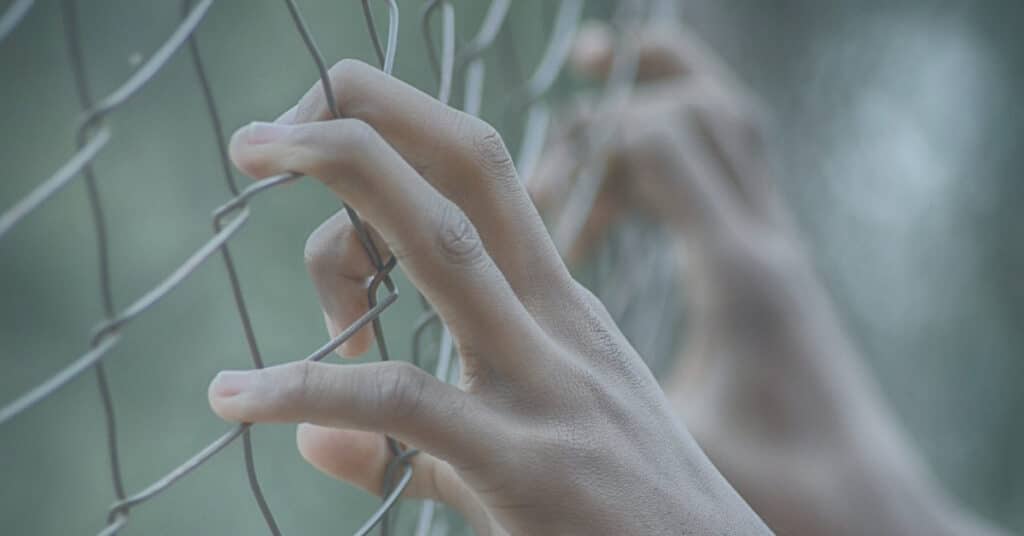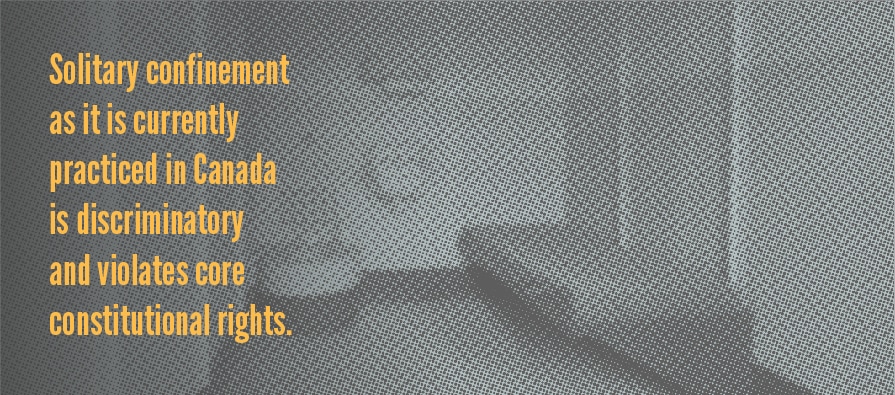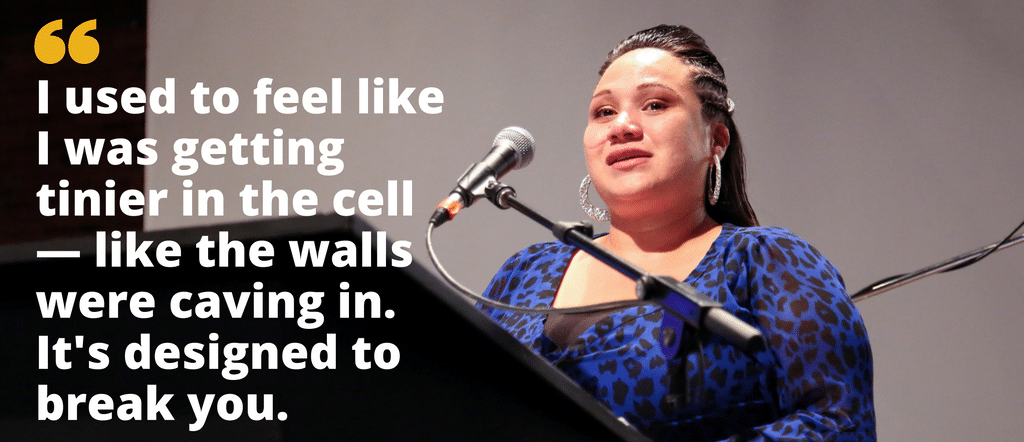Challenging “Lockdowns” in Canadian Prisons
On October 12, 2021, the BCCLA filed a lawsuit against the Federal Government to challenge the use of prolonged or indefinite lockdowns in Canadian prisons. These practices are inhumane and violate ss. 7, 12, and 15 of the Charter of Rights and Freedoms, which prohibit long-term solitary confinement.
Across the country, wardens are regularly isolating people in prison by using lockdowns. During lockdowns, wardens restrict movement in specific units or entire institutions, isolating people to their cells for days, weeks and months at a time. Wardens often lock down prisons for administrative reasons, like staff shortages or construction. We’ve heard from people in prison that lockdowns are even more harmful than segregation because people get absolutely no time out of their cells. No phone calls, no exercise time, not even access to showers or laundry.
This lawsuit challenges the use of prolonged and indefinite lockdowns that amount to solitary confinement. Prisons have no authority to impose prolonged, indefinite lockdowns, and these procedures violate many Charter rights and constitute solitary confinement under the UN Mandela Rules.
Lockdowns have a disproportionate impact on Indigenous and racialized people as well as people living with mental illnesses. These restrictions on liberty often affect Indigenous peoples’ access to Elders and ceremonies. Prolonged lockdowns are devastating to the physical, psychological, social, and spiritual health of people in prison. Those who are subjected to extended use of these procedures suffer from a wide variety of adverse effects, including anxiety, hallucinations, panic, paranoia, ruminations and intrusive obsessional thoughts, self-harm, social withdrawal, and suicidal thoughts and behaviours.
If successful, we will put an end to the use of prolonged and indefinite lockdowns in federal prisons and move one step closer to ending the use of solitary confinement in Canada.
Solitary Confinement is Torture
International bodies and experts, including the UN Special Rapporteur on Torture and the UN Committee Against Torture, have concluded that prolonged or indefinite solitary confinement amounts to torture.
The negative effects of long-term solitary confinement are well-documented. These effects include psychosis, hallucinations, insomnia, and confusion. Solitary confinement can create mental illness where none previously existed or exacerbate pre-existing illness. It is a risk factor for prison suicide. The suicide rate for incarcerated individuals is seven times the rate of Canadians outside the prison system.
Canadian courts have ruled very clearly that prolonged or indefinite solitary confinement is unconstitutional. But while the Federal Government has eliminated some types of solitary confinement, the practice continues to exist in many different ways. The BC Civil Liberties Association is unwavering in its fight to eliminate solitary confinement in all its forms.
Eliminating “Administrative Segregation”
In 2015 the BC Civil Liberties Association and John Howard Society of Canada filed a legal challenge to the Federal Government’s use of solitary confinement in the form of administrative segregation in its prisons. The case alleged that solitary confinement amounts to cruel and unusual punishment that leads to suffering and deaths, deprives people of fundamental procedural protections, and is especially discriminatory against people who struggle with mental health, people with disabilities, and Indigenous people.
Following a 9-week trial in the summer of 2017, the Court issued a judgement calling for the end of the practice of long-term solitary confinement. Rather than truly learning from the evidence provided by people with direct experience and expert witnesses, the government doubled down on their system of institutionalized torture by appealing the decision. In November 2018, we returned to court – this time at the BC Court of Appeal – to vigorously defend against the government’s efforts to overturn this historic victory for prisoner’s rights. Once again, we were victorious when in June 2019 the Court of Appeal affirmed that administrative segregation was unconstitutional.
Following these court wins, the Federal Government was forced to pass Bill C-83 in 2019, which finally eliminated administrative segregation once and for all.
BobbyLee’s story: Taking action to end the “Management Protocol”
In 2011, the BCCLA sued the Federal Government on behalf of our client, BobbyLee Worm, a young Indigenous woman from Saskatchewan, who was held in solitary confinement for over three and a half years under a program known as the ‘Management Protocol.’
BobbyLee spent 747 consecutive days in solitary confinement. Speaking of her experience, BobbyLee recalled:
Two days after the BCCLA filed its lawsuit, BobbyLee was released from solitary confinement. For many years she continued working with the BCCLA to end the abuse of long-term solitary confinement for all prisoners. Her efforts to share her story helped to transform the fight to end solitary confinement in Canadian prisons.
Sadly, BobbyLee passed away on June 5, 2022. Despite the hardship she experienced, BobbyLee leaves a legacy of hope and inspiration. She gave the movement a voice and she convinced judges, legislators, and ordinary Canadians that this practice was unacceptable. She spoke with honesty and clarity about her experience of imprisonment, in a way that transformed public understanding.
In this short film by our friend and acclaimed filmmaker Kevin Eastwood of Optic Nerve Films, BobbyLee tells a small piece of her story.
The fight continues.
While the BCCLA continues its campaign against solitary confinement, the Federal Government is pulling out all the stops to defend its ability to violate the rights of prisoners.
As we move forward with our lockdown case, Canada is attempting to slow down the process by putting up procedural roadblocks. We’re gearing up for a long and difficult battle in court, and we won’t stop until prolonged and indefinite lockdowns are a thing of the past.
Stand against torture
While the Federal Government claims to have eliminated solitary confinement, the truth is it is fighting as hard as ever to maintain this destructive practice. We need to keep fighting back. From the Correctional Investigator of Canada to the United Nations, the message to our government has been the same: indefinite solitary confinement must end.



